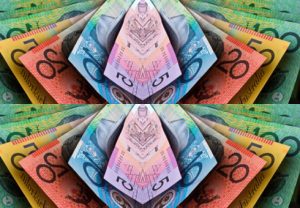Australian Dollar benefits from debate
28 September 2016 by News DeskAustralian Dollar benefited as analysts perceived a victory for Democrat nominee Hillary Clinton and subsequently economic consistency.
 Australian Dollar moved after Monday night’s debate, markets stabilised and investors began to indulge in more risky investments, according to currency specialists TorFX
Australian Dollar moved after Monday night’s debate, markets stabilised and investors began to indulge in more risky investments, according to currency specialists TorFX
The risk-correlated Australian Dollar benefitted considerably from this and held back Sterling’s recovery rally attempts. While GBP-AUD recovered from its worst weekly levels, the pair remained below last week’s worst levels on Wednesday morning.
New Zealand Dollar (NZD) – The Pound to New Zealand Dollar exchange rate briefly hit a weekly low on Tuesday morning, but investors bought into Sterling from its cheapest levels, especially as GBP NZD neared the record-lows it experienced last week.
While the ‘Kiwi’ was bolstered by the same surge in risk-demand as its peer, the Australian Dollar, it struggled to capitalise due to bets of further easing from the Reserve Bank of New Zealand. This left the Australian Dollar far more appealing in comparison.
Australian Dollar benefits from debate
Pound Sterling (GBP) – Despite a lack of supportive UK data, the Pound was able to make a strong advance against some of the majors – particularly the Euro – on Tuesday as investors bought the currency up from its cheapest levels.
Sterling had previously fallen across the board due to fears of a ‘Hard Brexit’, the strong possibility of leaving the European Union without Britain negotiating any single-market access (or any other EU benefits). These ‘Hard Brexit’ rumours have also caused further Bank of England (BoE) easing bets as markets begin to doubt the prosperity of Britain following its EU exit.
US Dollar (USD) – The US Dollar strengthened slightly on Tuesday morning as markets reacted to the first US Presidential debate held on Monday night – at which Democrat candidate Hillary Clinton was perceived to have performed more strongly than her Republican opponent Donald Trump.
As Clinton is being seen as offering more stability for the current US economic system, market sentiment improved after her performance. Investors also took the opportunity to indulge in riskier assets and risk-correlated currencies after the event. It’s worth noting that market jitters towards the US Presidential election are likely to worsen considerably as November’s election date approaches, regardless of bets of a Clinton win.
Sterling was able to advance against the US Dollar despite improved ‘Greenback’ sentiment and an increase in domestic consumer confidence from 101.8 to 104.1, as investors sought out riskier assets instead.
Euro (EUR) – The Pound to Euro exchange rate jumped up from its lowest 2016 levels on Tuesday and continued to advance on Wednesday morning as markets sold the Euro across the board.
Various factors weighed on Euro demand, perhaps most notably a perceived crisis with Germany’s Deutsche Bank. The banking group’s shares plunged -3% to new all-time-lows during Tuesday’s session, and markets began to fear that the bank’s financial crisis could spread to other parts of the Eurozone and damage the Euro itself.
The US Department of Justice recently fined the bank US$14bn for mis-selling mortgage bonds before the 2008 financial crisis and the plummet in the bank’s shares have been due to doubts that the bank could afford it. However, the drop in shares could also cause real damage.
Wednesday morning saw the publication of GfK’s October consumer confidence survey for Germany, which slipped from 10.2 to 10 and likely weighed further on Euro and German confidence.
Canadian Dollar (CAD) – The Canadian Dollar also failed to capitalise on Tuesday’s boost in demand for riskier assets, as the oil-correlated ‘Loonie’ was held back by jitters in the oil market.
After weeks of speculation that oil producing nations were getting closer to being able to agree on measures to curb oil production to stimulate oil prices, Tuesday’s meeting of oil-producers led to no real progress being made.
As some investors had hoped for progress right up until Tuesday’s session, oil prices and the ‘Loonie’ itself suffered from the news. Iran oil producers vowed to instead ramp up oil production to make up for being locked out of global markets. Disagreements between Iran and Saudi Arabian producers seemed too considerable for any oil deal to be perceived as likely in the near future.
Disclaimer: This update is provided by TorFX, a leading foreign exchange broker, its content is authorised for reuse by affiliates.
Learn more about the Australian Dollar – Contact TorFX: Get A Quote
Click here for expert help with travel visas: Travel Visas to Australia
Want to get a job Down Under? Click here for expert help: How to Get a Job in Australia
Click here for tourist information about Australia: Visit Australia


